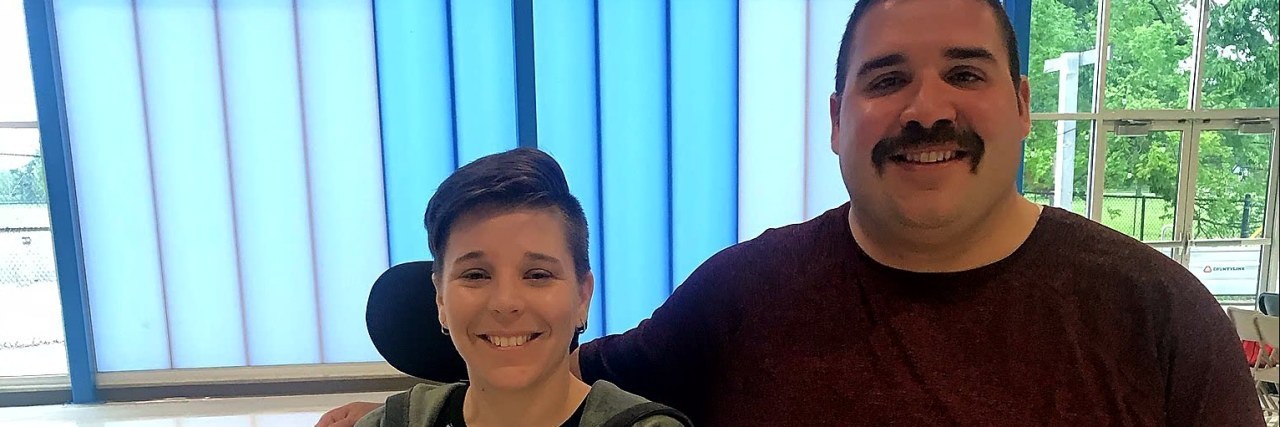There is a lot of controversy these days regarding the words “disability” and “disabled.” Many people without disabilities still believe the training and education they received back in the 80s and 90s about how the words “disabled” or “disability” are derogatory words that shouldn’t be used. However, there are many people in the disabled community who embrace their disability and consider it a part of their identity.
Without our disabilities, we would be totally different people. My disability has helped me to be more humble, aware of my surroundings, and fully appreciate every moment I have with those that I love. I would not change the fact that I’m disabled because it is part of my identity. By using terms like “differently abled,” “handicapable,” or “special needs” to describe me, you are taking away a large part of my identity. You are essentially saying that my disabled body is not good enough, or you aren’t comfortable with my disabled body so you are making up words to make my disability less awkward for you. You are telling me that you don’t see a large part of what makes me the person I am. You are saying I am less than, or not as worthy, because of my disability.
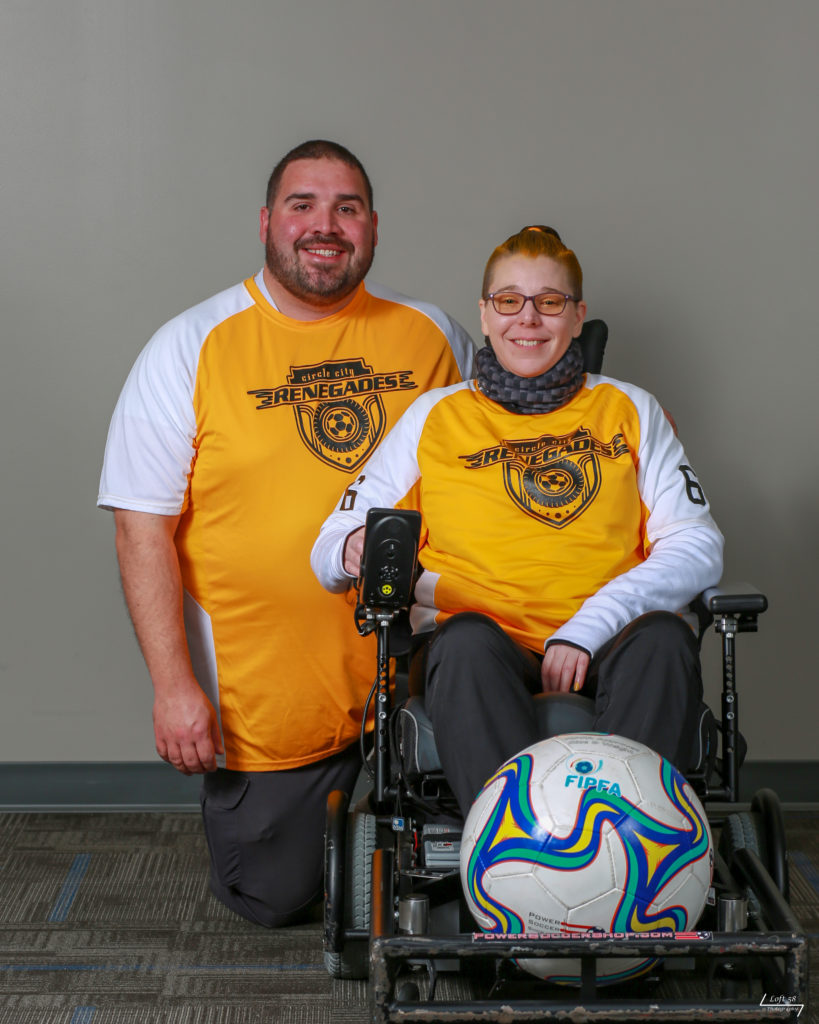
Many of these terms came about as a result of parents with children with disabilities who didn’t want their child to be treated differently. In those days, there may have been a good purpose for using these terms, and teaching others not to say “disabled,” but the culture has started to shift.
There is also a lot of controversy over person-first language. Some people in the disability community prefer person-first language. Person-first language was created to help people see that a person with a disability is a person first who just happens to have a disability. While I see nothing wrong with this per se, there are many disabled individuals who prefer to use identity-first language instead. Some people with autism prefer to be referred to as autistic. Some people with paraplegia prefer to be referred to as paraplegic. Some people with dyslexia prefer to be referred to as dyslexic, etc.
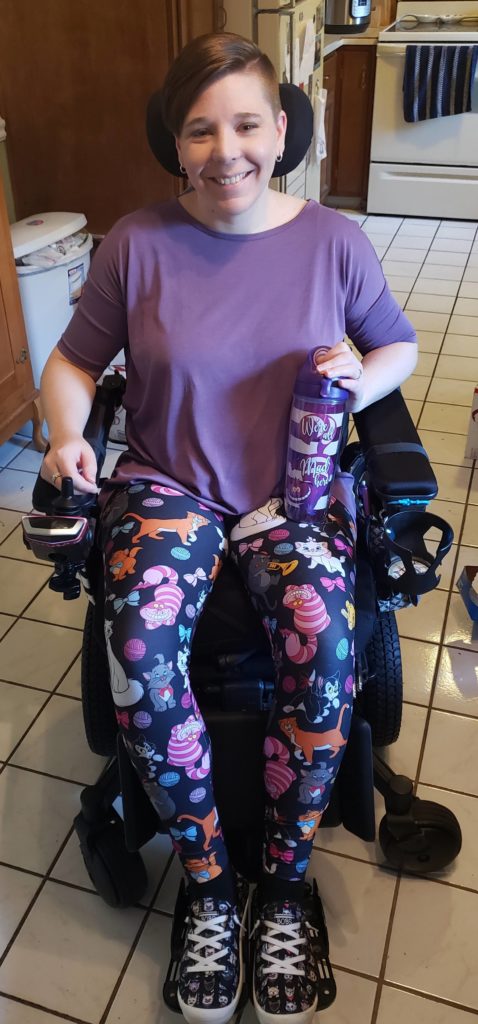
Personally, I don’t really care, but I’m not going to be offended if someone calls me disabled, because that is what I am. I am disabled. I have a disability. Some people prefer not to use person-first language because they identify with their disability as a part of their identity, and they don’t want to lessen that part of their identity. They proudly identify as disabled. I am proud to identify as disabled, but if you prefer to refer to me as a person with a disability then I’m OK with that as well. As you may notice, I use person-first and identity-first language interchangeably in my writing.
What I’m not OK with is being regarded as less than someone without a disability. Terms like “differently abled” and the others I mentioned above take away the identity of a person with a disability. Sure, there is more to being disabled than just having a disability, but it is an important part of us. Disabled people can do many things, we just sometimes do them a little differently than others. We are wives, husbands, partners, mothers, fathers, aunts, uncles, employees, employers, students, volunteers, athletes and so much more. We are able to do so many things with our disabilities.
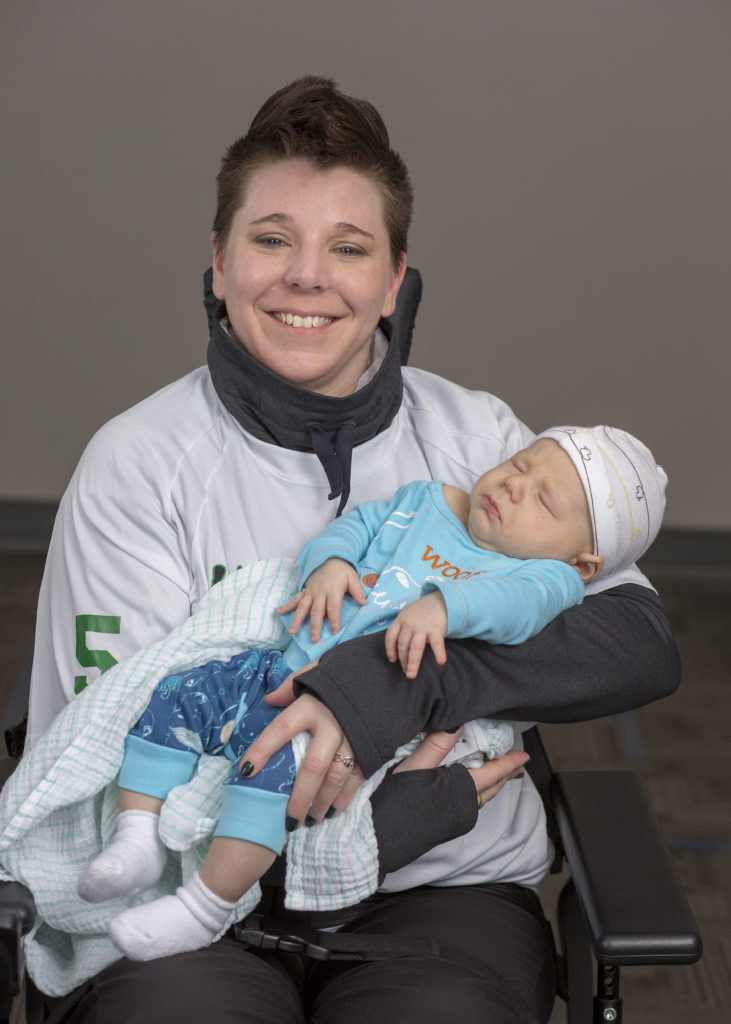
Notice I didn’t say “despite our disabilities?” Phrases like, “Look what she can do despite her disability,” or “He overcame his disability to achieve so much,” or “They are so inspiring because they do this while suffering from their disability” are demeaning and should not be used. We don’t “overcome” our disabilities, we don’t do things “despite” our disabilities, we aren’t “inspiring” for doing everyday tasks, and we certainly don’t “suffer” from disabilities.
These terms and phrases are used by people without disabilities to make them feel better about themselves, but those with disabilities are just living their lives like everyone else. Sure, we all have obstacles to overcome and some are more difficult or burdensome than others, but we continue to live and thrive with our disabilities. We all have things at which we excel and things with which we need help. We are all people and should be treated as such.
Like many cultures in recent years who are taking back control of words that used to be considered slurs, people with disabilities are taking back the word “disabled.” Many of us have no problem with being identified as disabled because we are disabled. It is a part of us, and there is nothing wrong with that. Some, however, don’t agree, and have not embraced the term “disabled.”
So, what do you do when you meet someone with a disability? Well, you do the same thing you do when you meet anyone new — you talk to them. You get to know them. You pay attention to how they identify themselves, and if they don’t identify themselves in any particular way, it’s OK to ask, “How would you prefer to be identified?” Or you could say, “Do you prefer person-first or identity-first language?”
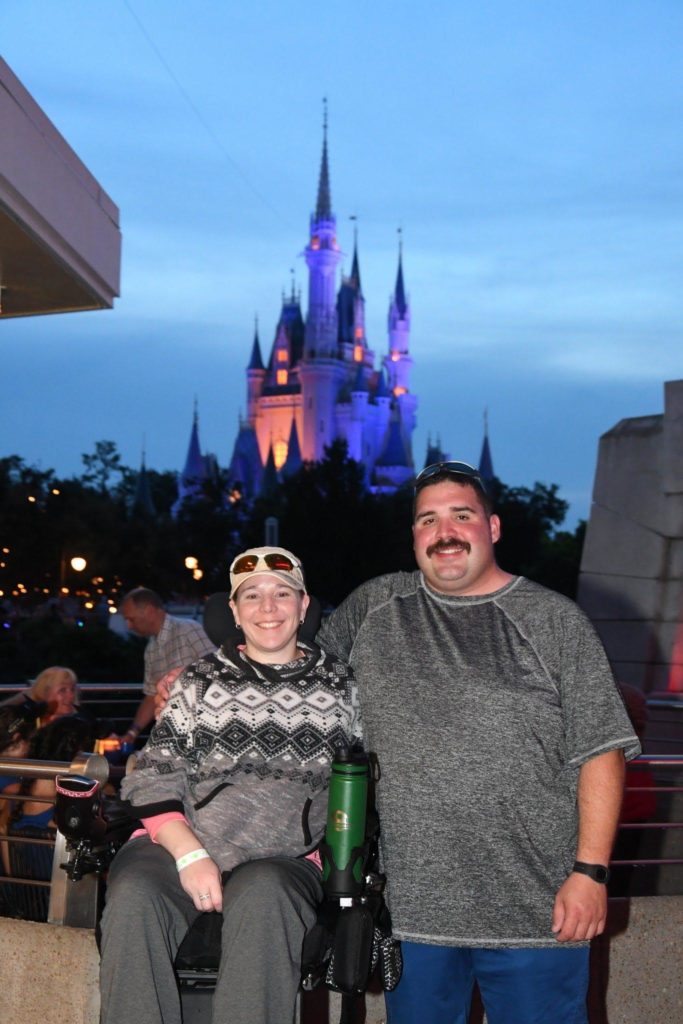
If you don’t know how to refer to someone, the best way is to call them by their name! Disabled people, or people with disabilities, are all unique. Just like non-disabled people, we can’t put disabled people in a box. We can’t say that all people prefer person-first language, or that they identify as “disabled.” The only way to know for sure is to ask.
When we focus only on the abilities of people who are disabled, we forget about a large part of their identity — their disability. When we say we don’t see the DIS in disability, we’re disregarding an important part of who disabled people are. So let’s start acknowledging people’s differences, celebrating what makes them who they are, and stop trying to create labels that only diminish their identity.
This story originally appeared on Zebra Talez.

